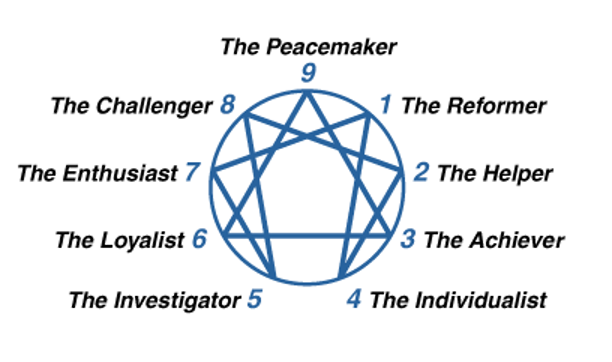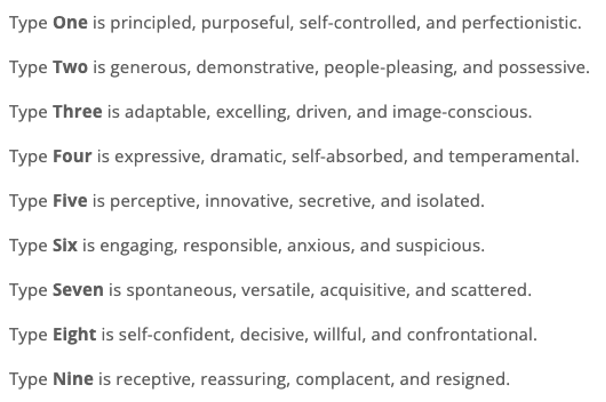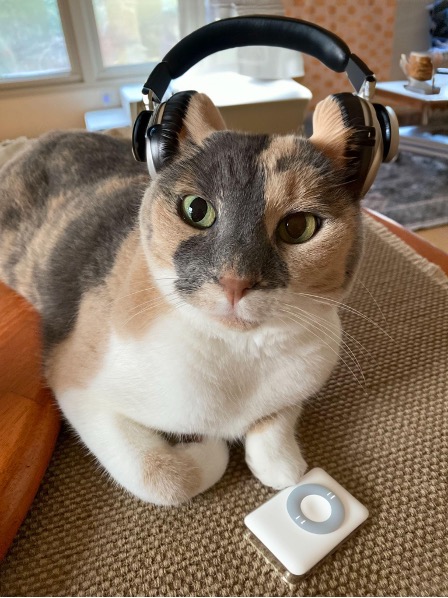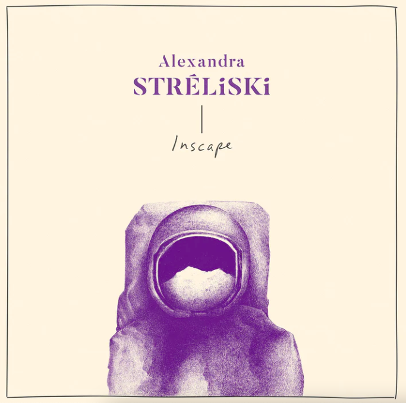Writing Soundscapes
By Karah, a Writing Center Coach
I’ve had a long and complicated relationship with music and writing. Thinking back on when I first began writing for personal enjoyment as a teenager, it’s strange to realize how I did all of that writing while not listening to music (!), as I didn’t have my own iPod, laptop, or smartphone until I was in college, and I didn’t exactly have an extensive CD collection. When I did discover writing with music, though, it began to play a huge role in my writing process.
The first time I remember listening to music while writing occurred during spring break of my freshman year at university; I was at home trying to revise a literary analysis paper on Emily Dickinson’s poetry. This was one of my first attempts at writing a literary analysis paper, and as someone who was interested in majoring in literature, I was eager to rise to the challenge and to do a stellar job on this assignment. I had shown my instructor an initial draft that I thought was quite good, but he gave me a lot of feedback that I needed to consider and implement in order to make the paper much stronger.
Needing some motivation and feeling like I should make this a “fun” experience since I was having to write over spring break, I decided to listen to music while I worked; so, I headed over to YouTube (this was before I had Spotify or Apple Music) and found a stirring (what can I say, I’m a 4 on the Enneagram – see below for explanation) 1892 nocturne by Debussy. I felt so inspired as I listened to this piece that I often looked up from the computer to stare at the wall or out the window while feeling what, to quote Dickinson herself, can only be described as a kind of “sumptuous despair.” As I struggled endlessly with this revision, the music kept me feeling creative and pensive even while I despaired of putting everything the right way; indeed, I started to feel like, to quote Dickinson again, “I would not paint – a picture – / I’d rather be the One / Its bright impossibility / To dwell – delicious – on.” Instead of “paint[ing] – a picture” with my words on the page, I sort of relished “dwell[ing]” on the “bright impossibility” of putting those words down. When the song ended, I went back to my YouTube tab and restarted it; this quite literally went on for hours. I’m positive that the writing process took me much longer than it needed to because I was so wrapped up in the music and the feelings it evoked. But for me, it was “fun” to have an afternoon of feeling emotional and creatively despondent with beautiful music. (I ended up doing well on the essay.)
 The Enneagram Institute has a chart showing the different “types.” I’m a 4 – which are you?
The Enneagram Institute has a chart showing the different “types.” I’m a 4 – which are you?

They also have “keywords” for each type (can confirm I’m definitely expressive and dramatic… and possibly self-absorbed and temperamental sometimes…).
Writing term papers and seminar papers eventually became one of my favorite things to do, as it meant I could write about interesting ideas and listen to great music! While I was really interested in what I was studying during my time as an undergraduate and a graduate student, music proved to be a key factor in getting me to sit still and write. Music could make even assignments I dreaded become quite tolerable! For example, I can remember being in the thick of paper-writing season and sometimes wishing I could, instead, watch films I loved (I often did want to write the essays, but I also wanted to watch movies). Since I tend to re-watch movies and since many of my go-to films also have soundtracks that I love, I realized I could just listen to the soundtracks while I wrote and thus basically re-watch the film in my head while writing. Some of my go-tos were Little Women (1994), Lord of the Rings (all three films, 2001, 2002, and 2003), Amélie (2001), The Village (2004–yes, I was obsessed with this film for many years and still am to some degree), and Pride & Prejudice (2005; if you know you know). Even for assignments I looked forward to, I depended on music to motivate and inspire me.
Although music did help to keep me at the writing table, it took me an astonishingly long time to recognize that writing with music all too often distracted me too much from my words on the page. In fact, it wasn’t until nearly a decade after my freshman year in college that I realized this after being diagnosed with severe ADHD in the midst of my current PhD program. One day when talking with my therapist, I realized that the music I was listening to was serving more as a distraction than as productive momentum for my writing, and I needed to re-assess this particular writing habit. I realized that listening to all of the epic soundtracks and classical symphonies I enjoyed was what in many ways brought me to and kept me at the writing table, but my brain often focused more on the music and less on the clarity, focus, and precision of my writing. I had many experiences writing something I really enjoyed and which I felt was amazing only to realize later that it was unclear and had multiple points of focus. I wouldn’t say music was the source of this problem–in many ways I struggled to understand the lack of focus until I was diagnosed with ADHD; but, I do think that for a long time music kept me feeling good about my writing until I realized I needed to develop more awareness regarding my researching and writing habits.
When I realized, with the help of my therapist, that music was serving as too much of a distraction when writing, I felt suddenly like I would not have the motivation to write anymore, especially since (deep into my PhD program), I was also suffering from burnout. What’s more, I also always have a song on loop in my head. Listening to music when writing, and especially familiar music, could help to “quiet” the music in my head, which sometimes my thoughts would latch onto. In my brain I think I also had a subconscious connection between the piano keyboard and the computer keyboard, between the act of reading music and striking keys and striking keys and putting symbols and words on the digital page. (I play piano, but much less so now since I entered grad school unfortunately.) The rhythm of playing the piano keyboard could mirror the rhythm of constant typing – sometimes typing more quickly typing, other sometimes more slowly.
Reflecting on my experiences with music and writing now, though, I will say that there is simply no way I could possibly write my dissertation without music. (This is for a different blog post, but I also want to note here that there’s also no way I could write without my constant cat companion, whom I also call my writing “Mews,” Cappuccino.)

Let me explain how I got to keep music in my writing life!
While I tried to write without music after realizing that it was distracting me too much, I found great difficulty in doing so for any length of time longer than, say, about 15-20 minutes: my mind just kept wandering and I quickly grew bored and felt like my brain needed new things to interest it. And, what is more, I had random loops of songs stuck in my head anyway, as I always do, on top of racing thoughts. So, I decided to experiment by listening to music that fit certain criteria:
- No words and no human voices.
- No large, powerful shifts in emotion (so, steer clear of Chopin for example).
- No symphonies.
- No movie soundtracks.
I began to listen to music that has a pretty consistent, sustained emotional tone and rhythm and that has a contemplative mood; I have found that this helps to control my own shifts in feeling and emotion and to keep my attention centered on the task at hand. I also learned that Apple Music even has curated playlists for “concentration” or “focus” that feature classical pieces. I decided to listen to some of these playlists in addition to albums I already knew about, and in the process I found some new artists and composers. I soon discovered that music that fits my “criteria” could help me maintain focus and momentum and help keep my writing sessions fun and enjoyable, even if I felt like I was having a bad writing day. (As a bonus, too, I’ve recently discovered Reverie & Felicity candles, which are also so delightful to have near my desk when writing!)
At a certain point, I began missing choral music, though. Since normally I listen to music using my headphones, I realized that choral music or music with words might be too distracting to have playing through headphones but maybe not on the speaker in my house, as then it could function as more of a background noise. When I have the house to myself, then, sometimes I’ll listen to choral music to put me in the writing mood. For both choral and non-choral music, lately I’ve been gravitating to Baroque-era music because much of this music feels very mathematically exact and regular to me. I find this regularity helps me stay focused and on-track as I write. It also helps when the words are in another language I don’t know, because then I won’t fixate on the words’ meanings.
As neuroscience has helped to establish, in a lot of ways our brains are physically hardwired to think and remember through music, and it’s been suggested by scientists that people with OCD (like me) may be more susceptible to having music loops in their minds than people with just ADHD; however, it’s also been shown that music can actually help people with ADHD to focus on their work. Like alex describes in his post on “Writing from Silence, Reading with Music,” I have discovered how “certain kinds of writing often follow certain types of music.” For example, if I really just need to get words on the page, Bach’s Goldberg Variations are great. If I want to feel really inspired, I tend to listen to Alexandra Stréliski’s Inscape. Unlike alex, when I’m reading, I actually don’t listen to music; I struggle with focus and comprehension and read more slowly than most, so I quickly discovered that reading with music is difficult for me (that being said, at times I can listen to some instrumental music when reading, but not often). But like alex, I also choose silence when I’m in the final stages of proofreading.
My reflections on and experimentations with writing to music have helped me to better understand how I work best, and why – something that’s been hugely helpful for me as a person and as a graduate student. It’s given me insight into how my brain works and what motivates me, knowledge which I will certainly carry with me far beyond the dissertation and my PhD degree.

If I had to choose ONE writing album, it would be this one. At 35 minutes, it’s fairly short, but I have it on loop frequently. I love the introspective nature of this album, which is evoked in the title itself: “The word ‘Inscape’ is a contraction of ‘Inner-landscapes’ but also refers to Gerald Manley Hopkins’s concept of ‘unique quality of the self’” (description from Stréliski’s website).
Some of My Recent Music Writing Favorites for Writing!
Instrumental:
Bach: The Well-Tempered Clavier – a progression, clear and focused. I love how this work is basically songs composed in all of the major and minor keys; it’s a great journey.
Bach: Goldberg Variations, the 1955 and 1981 Recordings performed by Glenn Gould – sort of intense at moments, a bit like a bumblebee buzzing, but it keeps me on track.
Bach, the 6 Unaccompanied Cello Suites Complete performed by Yo-Yo Ma – absolute classic, of course – soothing and focusing.
Alexandra Stréliski, Pianoscope (2010), Inscape (2018), and Néo-Romance (2023) – love all of these sooo much; sometimes there is a whimsical vibe–Néo-Romance definitely feels the most emotional, but it’s still focusing and soothing to me.
Chad Lawson, breathe (2022) – beautiful and meditative!
Mozart’s Piano Concertos, but most especially No. 23 in A, K. 488: II. Adagio (my favorite Mozart piece ever)
Pretty much anything by Henry Purcell. Complete Chamber Music (2006) is a good one! Very long!
Choral:
Pretty much anything by Thomas Tallis . . . an extremely long album is the Tallis: Complete Works – highly recommend! Nothing like putting this one on a speaker in the house and just feeling like you’re in a cathedral…
VOCES8, After Silence (2020) – love VOCES8 so much–their voices are absolutely ethereal.
Mozart’s Requiem (when I’m feeling like I want to get the things done but also want some drama)
Purcell’s Love’s Goddess Sure Was Blind – pretty random I know, but I like the choral pieces a lot…

